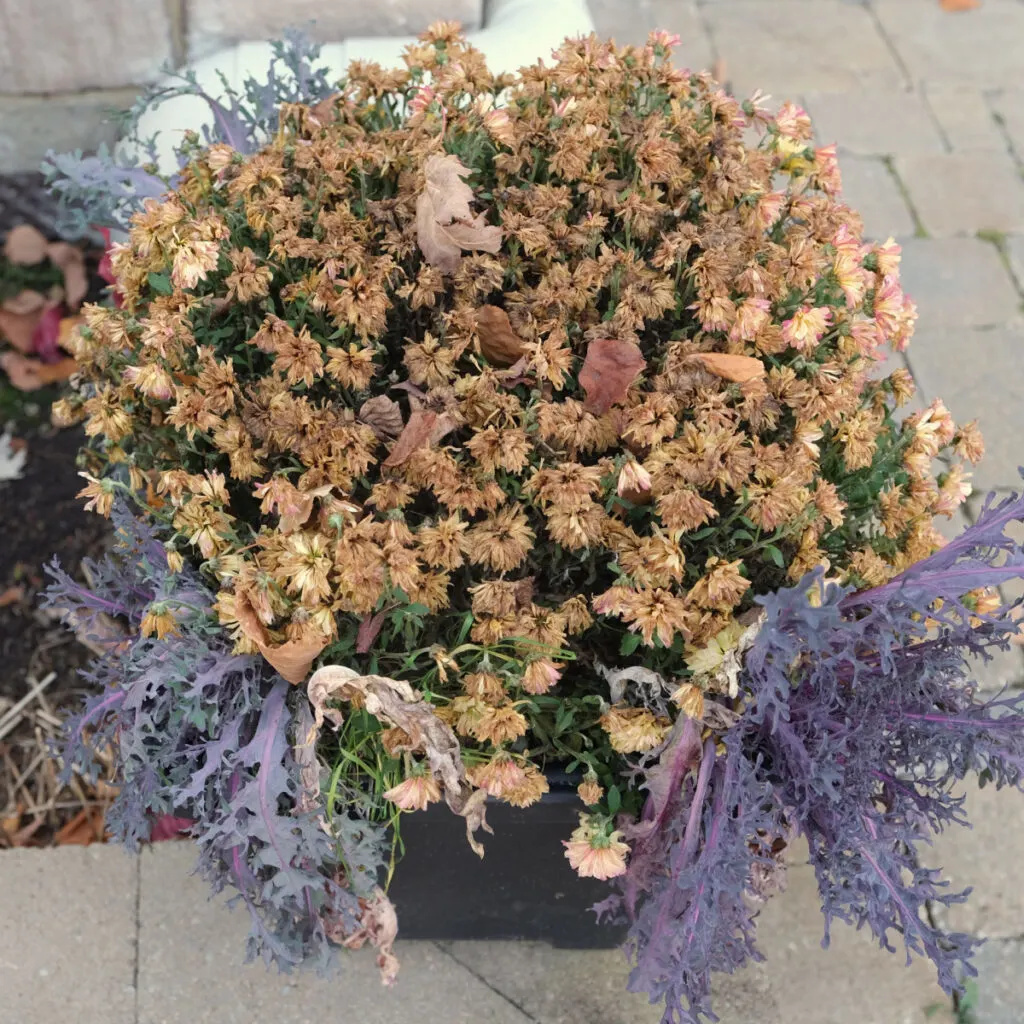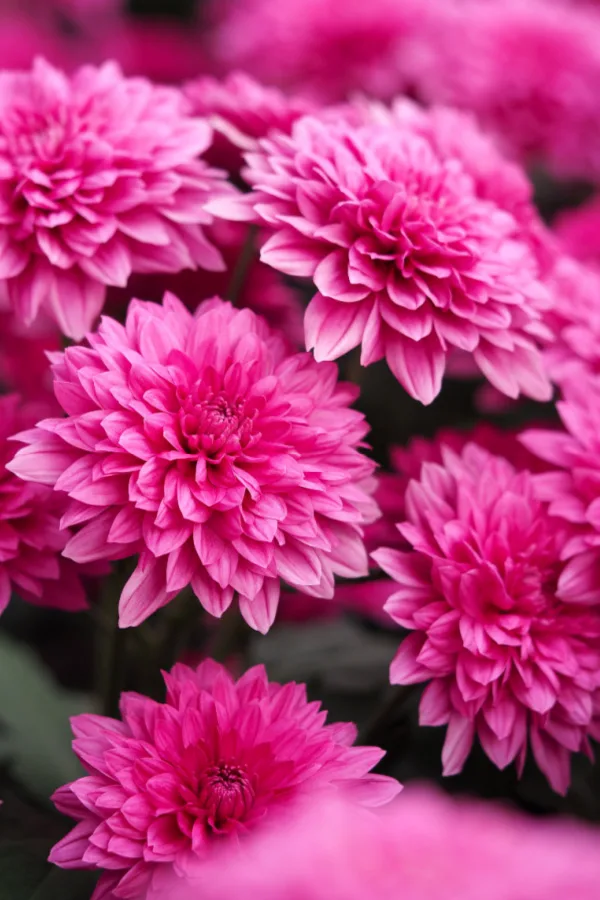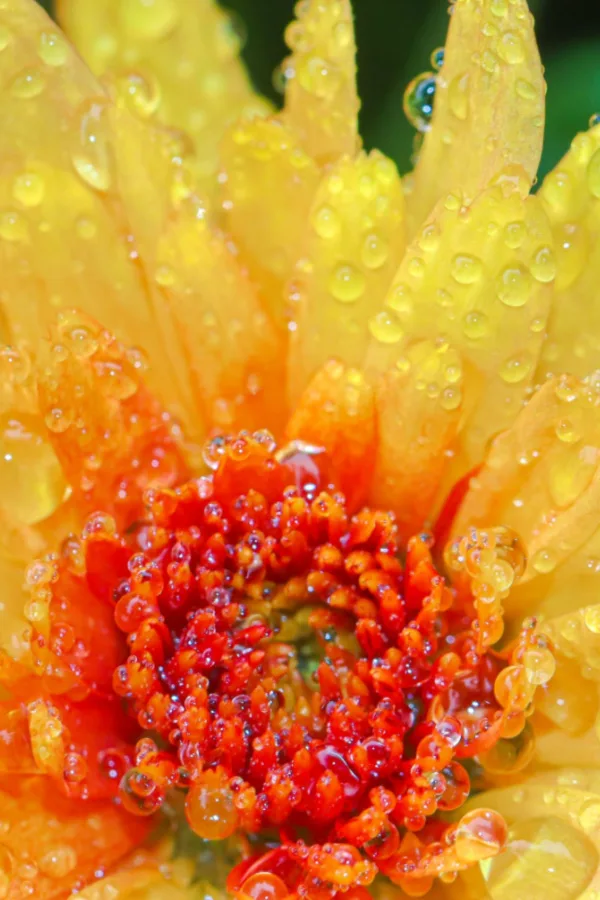Each and every autumn, the emails start flying in with an all too familiar question – why are the blooms on my mums starting to fade – and why are my plants dying off so early in the season?
Mums are certainly the most well known flowering plant when it comes to decorating for the fall season. Their bright green foliage and massive canopy of blooms light up any display. And with their wide variety of blooming colors, they can match almost any theme or decor as well.
But for all of the amazing attributes this stunning perennial brings to autumn decorating, it is also the source of a lot of frustration for gardeners. Especially when their mums begin to fade and die off way too early in the season.

Mums are definitely not one of the least expensive plants around. Small plants and planters can be upwards of $15. And the bigger mums easily go for $30 to $40 or more. One thing is for sure, having to spend that once is bad enough – but having do so to replace plants that faded too early can really be hard on the budget!
So what is the answer? And why do mums fade faster than they should? Believe it or not, there are actually 2 simple mistakes gardeners make when caring for their mums that can cause them to fade prematurely. And by simply avoiding them, you really can have your mums blooming all season long!
Why Are My Mums Dying Early?
Before getting to the two simple mistakes, there is one other major factor to consider when trying to get your mums to last all fall long. And that factor is purchasing mums that are close to or are already past their prime.
It’s important to remember that even with proper care, the blooming life of a mum is limited. Once a mum unfurls its blooms, it has at most four to six weeks of flower life. And that is with great care.
Unfortunately, if you purchase mums that are already flowering strong early in the season, no amount of care will keep them in bloom until the end.

When buying mums early, look for mums that have tight bloom buds and no flowers. Especially if you are purchasing early in the fall season. These give you the best chance of all-season color. Even better, by buying before they bloom, you can ensure they get the proper care to make those blooms last as long as possible.
Now – let’s take a look at the 2 biggest mistakes that can cost weeks of bloom life on your mums!
2 Big Mistakes That Shorten A Mum’s Bloom Life!
#1) Letting Your Mums Get Rained On – Why Are My Mums Dying Early?
Although mums need water to survive, how they get that water matters. Any type of water that hits a mum’s bloom from above is going to shave time from it’s lifespan. Whether it comes from hand watering – or via rainfall. And as you will see below, rainfall is especially bad for the life of a mum’s bloom.
When water touches a flower, bad things happen. For starters, water fades the bright coloring of its petals. And the more water that runs over and through the bloom, the more the color bleeds away. If your blooms seem dull and lifeless, how they are being watered is a likely culprit.

But beyond fading, water laying on a bloom causes a slew of other issues too. When a mums blooms are full of moisture, they decay and die off much faster. And if the sun happens to shine while they are moist, it can cause sun scald. As if not bad enough, wet blooms can also get mold and mildew easily as well.
To keep your mums blooming as long as possible, always water below the flower canopy. Place your watering hose or spout at the soil level to keep blooms dry. But even more importantly, keep them out of the rain, especially if a hard or prolonged rain is in the forecast.
Not only does rainfall soak the flowers, its force causes far faster fading than hand watering. In addition, that force can also prematurely knock blooms from their stems. For more on watering mums, be sure to check out: How To Water Mums In Pots
#2) Keeping Mums In Direct Sun – Why Are My Mums Dying Early?
Just as rainfall can shorten the life of a mum’s flower, so will direct sunlight. In fact, mums that are out in full sun for long periods each day can have their flowering life cut in half or more!

Sunlight might be critical when it comes to getting mums to grow and produce buds, but once they begin flowering, it only speeds up the life cycle of the bloom.
Hot, direct sunlight is hard on the flowers. The UV rays not only fade the color from blooms, they also increase the energy and production level of the plant – causing it to mature blooms far faster. The end result is a mum that blooms for just a few weeks instead of a month or more.
Try to locate your mums where they receive minimum direct sunlight. Porches, patios, and underneath trees or bushes are all excellent for providing protection. If you do have a display in full sunlight, if at all possible, move them out during the hottest parts of the day.
It may seem like a bit of extra work, but you won’t have to replace your mums! Here is to getting the most from your mums this year – and to keeping their blooms from dying too early in the season. Happy Gardening – Jim and Mary
Jim and Mary Competti have been writing gardening, DIY and recipe articles and books for over 15 years from their 46 acre Ohio farm. The two are frequent speakers on all things gardening and love to travel in their spare time.
As always, feel free to email us at thefarm@owgarden.com with comments, questions, or to simply say hello! You can sign up for our free email list in the subscribe now box in the middle of this article. Follow us on Facebook here : OWG Facebook. This article may contain affiliate links.
